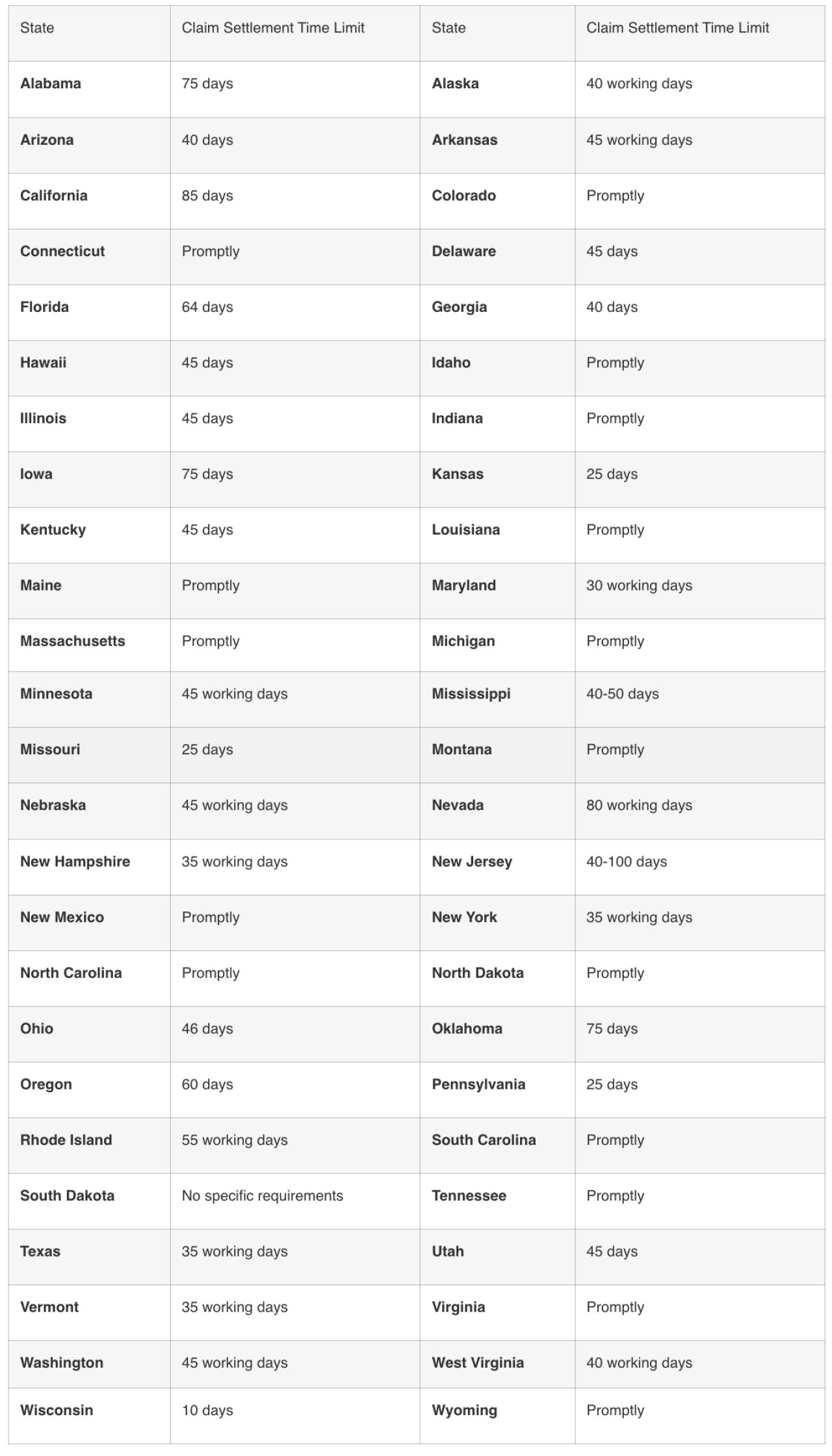How long do car insurance claims take to settle?

Monkey Business Images // Shutterstock
How long do car insurance claims take to settle?
After a car accident, a primary concern for many drivers is how long it will take for their insurance claim to be settled. While a simple claim might be resolved in a matter of days, complex cases can take weeks or even months. The timeline for a car insurance claim settlement is influenced by multiple factors, including state laws, the specifics of the accident, and the efficiency of the insurance company. CheapInsurance.com will provide a comprehensive overview of the claims process and offer insights on what to expect.
When to File a Car Insurance Claim
Filing a claim isn’t always the right choice, especially for minor incidents. You should first consider whether the cost of repairs exceeds your deductible. A deductible is the amount of money you pay out of pocket before your insurance coverage kicks in.
For example, if your deductible is $1,000 and the cost to repair a dent is only $500, it’s not worth filing a claim. In this scenario, you’d be paying the full cost yourself and still risk a potential rate increase. However, you should always consider filing a claim if:
- Injuries are involved: Medical costs can be extensive, and your liability coverage is designed to protect you from significant financial loss in this situation.
- The accident involves another party: This includes other vehicles, property (like a fence or building), or pedestrians. Your insurance company will need to step in to handle the liability and a potential lawsuit.
- The at-fault party is unclear: If there’s a dispute, your insurance company can help investigate and determine who is at fault.
- Damage is significant: If the cost to repair your vehicle is substantially more than your deductible, filing a claim makes financial sense.
How Long Do Insurance Companies Have to Settle a Claim?
Insurance companies are required to follow state-specific laws regarding claim settlement timelines. These laws are designed to protect consumers from unreasonable delays. While most states require insurers to act “promptly”, some have very specific deadlines.
Here is a general overview of state-specific claim settlement time limits:

CheapInsurance.com
Factors that Influence Claim Settlement Time
The length of time a claim takes to settle is directly related to its complexity.
Simple Claims: These are typically resolved quickly. They involve minor damage, clear liability (who is at fault), and no injuries. Examples include a broken windshield, minor scratches, or a roadside assistance call.
Complex Claims: These take longer to settle because they require more investigation. These claims often involve:
- Bodily Injury: Medical claims can be time-consuming to process as the full extent of the injuries may not be known immediately. The claims adjuster needs to review medical records, bills, and potentially speak with doctors.
- Disputed Liability: If both parties claim the other is at fault, the insurer will need to collect evidence, interview witnesses, and review police reports to determine who is liable.
- Total Loss: If a vehicle is considered a total loss, the insurer must determine its actual cash value (ACV), which involves researching its market value, condition, and mileage. This process can take several weeks.
For complex claims, it can be helpful to be familiar with the common insurance terms.
What to Do If Your Claim Is Delayed
If you feel your insurance company is taking too long, don’t just wait. You can take action to keep the process moving.
- Communicate Proactively: Regularly check in with your insurance adjuster to get a status update. Ask for a specific timeline for the next steps and make sure you have provided all the information they need.
- Document Everything: Keep a detailed log of all communication, including dates, times, and the names of the people you spoke with.
- File a Complaint: If the delay is unreasonable and the insurer is not providing a clear reason, you can contact your state’s Department of Insurance. They can mediate the situation and enforce the state’s claim settlement laws. In extreme cases, if the insurer acts in bad faith, you may have grounds to pursue legal action.
By understanding the claims process and being proactive, you can help ensure your claim is settled as efficiently as possible.
This story was produced by CheapInsurance.com and reviewed and distributed by Stacker.
![]()
